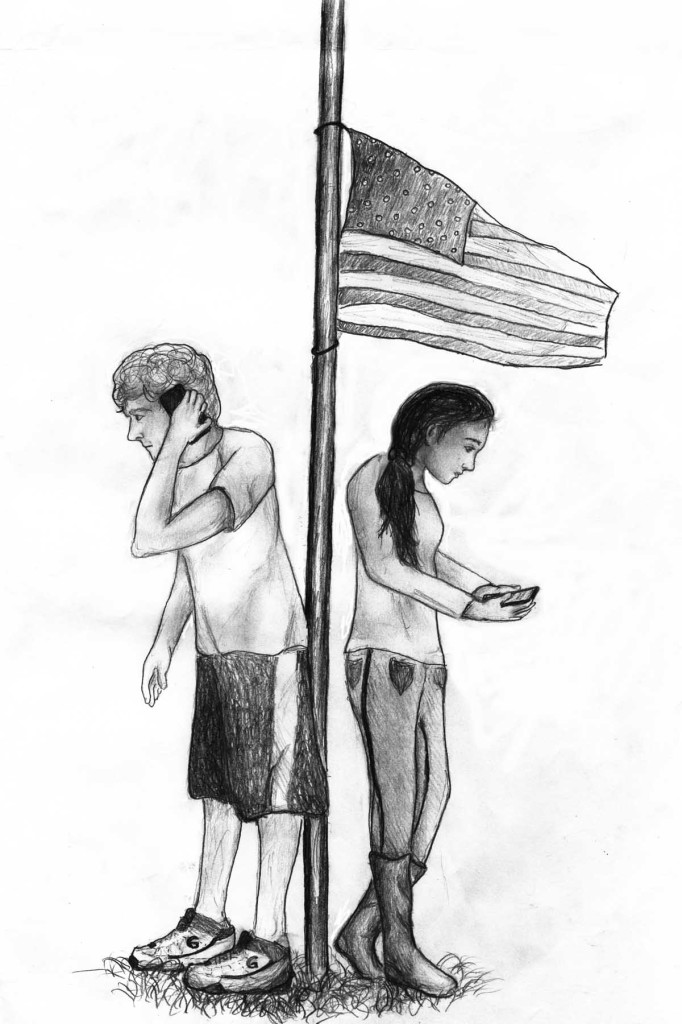
I have attended a funeral every day after school.
How? I simply listen to the chattering of clicks and watch my password of small black dots align, teleporting me to a world of death and eulogies.
This world is Facebook. My newsfeed is no longer dominated by “<3”s, “OMG YOU’RE SO GORGEOUS”s and heavily made-up girls posing in scenic backgrounds. Each of the formerly mentioned still persists, and so does the manufactured display of friendship and love. Yet the comic and relaxingly trivial culture of Facebook has vanished as students and adults alike avow their thoughts and condolences on the tragic losses recently experienced in our community.
But social media is not an appropriate platform for such expression.
Running to our computers in the face of tragedy sacrifices the intrinsic human respect of death. Solemn respect is ingrained in morality, but the public atmosphere of Facebook incentivizes us to contrive disingenuous, cliché and utopian messages of harmony and happiness. There is an implicit requirement that we must amass accolades and likes, and this invisible standard dilutes the true expression of condolence. Posts become fashionable and insincere.
The result of resorting to the Internet is that the line between reality and the social media universe becomes blurred. Coping with death evolves into a facet of instantaneous communication and the pensive nature of tragedy is mitigated. Such alienation from life’s emotionally ruinous moments precludes us from using death as an experience off of which we should grow and reflect. As this estrangement grows, we, intentionally or unintentionally, eradicate the tender human to human connection that is critical to the healing process. We begin to think that a few seconds at the keyboard and the click of the enter key suffices in addressing death. But we need the hugs, the tears and the complete breakdowns that makes us volatile, emotional, and most importantly, human. To use the internet as a reaction to tragedy is to block our innate emotional disposition.
I realize that many of us have compassionate and caring intentions. However such benevolent motivations can be channeled appropriately by offering a hug, visiting the family and/or writing a letter. There are many tangible and respectful ways that illustrate true solicitude and commitment. Anyone can write something on the Internet, but the people who truly care are the ones who can talk, cry and personally engage with the affected. Any post on the Internet, regardless of its substance, is inherently insincere and impersonal; social media will never serve as a deferential means to honor the ones whom we have lost.
Social media does not, and should not, serve as a forum for the discussion of death. We have been prolonging a funeral that must be ended if we are to respectfully commemorate our loved ones. Let’s put our posts to rest.

